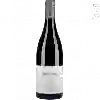
Domaine Brigand G.Bourgogne Rosé
This wine generally goes well with
Details and technical informations about Domaine Brigand G.'s Bourgogne Rosé.
Discover the grape variety: Fer-servadou
Fer-servadou noir is a grape variety that originated in France (Gironde). It produces a variety of grape specially used for wine making. It is rare to find this grape to eat on our tables. This variety of grape is characterized by large bunches, and grapes of small to medium size. Fer-servadou noir can be found in several vineyards: South-West, Languedoc & Roussillon, Cognac, Bordeaux, Armagnac, Provence & Corsica, Rhone Valley.
Informations about the Domaine Brigand G.
The Domaine Brigand G. is one of wineries to follow in Bourgogne.. It offers 5 wines for sale in the of Burgundy to come and discover on site or to buy online.
The wine region of Burgundy
Bourgogne is the catch-all regional appellation title of the Burgundy wine region in eastern France ("Bourgogne" is the French name for Burgundy). Burgundy has a Complex and comprehensive appellation system; counting Premier Cru and Grand Cru titles, the region has over 700 appellation titles for its wines. Thus, Burgundy wines often come from one Vineyard (or several separate vineyards) without an appellation title specific to the region, Village or even vineyard. A standard Burgundy wine may be made from grapes grown in one or more of Burgundy's 300 communes.
The word of the wine: Polyphenols
Substance contained essentially in the skin of the grape. The main ones are anthocyanins, which give red wines their colour and tannins.













